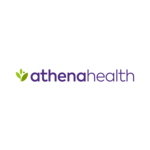Female Clinicians Spend More Time on Patient Care Documentation, Contributing to Lower Pay and Higher Burnout, athenahealth Study Finds

Findings show that female clinicians hold an average of 13 fewer patient encounters per week and spend more time in the EHR per patient, including significant time outside of patient appointment hours
WATERTOWN, Mass.–(BUSINESS WIRE)–athenahealth, Inc., a leading provider of network-enabled software and services for medical groups and health systems nationwide, today announced research insights that show significant differences in both patient interaction and appointment documentation practices between female and male clinicians. Female clinicians across specialties and clinical roles see fewer patients per week and spend a higher percentage of their electronic health record (EHR) documentation time outside of patient appointment hours when compared to male clinicians, the research found.
And though female and male clinicians spend the same amount of time on cumulative patient documentation per week, female clinicians spend more documentation time on a per-patient basis, scheduling an average of 60 encounters per week versus their male counterparts, who hold an average of 73 encounters per week, according to the study. The athenahealth findings show that gender differences in documentation minutes per patient encounter is at least 20% across most clinician specialties. More specifically:
- In cardiology, female clinicians’ documentation time per encounter is 62% higher than male counterparts.
- In neurology, female clinicians’ documentation time per encounter is 40% higher than male counterparts.
- In orthopedic surgery, female clinicians’ documentation time per encounter is 33% higher than male counterparts.
“These findings represent another example of how the traditional, volume-based payment model for physician services contributes to gender inequities in healthcare,” said Jessica Sweeney-Platt, vice president of research and editorial strategy at athenahealth. “Female clinicians tend to spend more time with patients, which we’ve learned includes the amount of time they spend in capturing and documenting each patient’s story.”
Ultimately, this requires that female clinicians sacrifice income, Sweeney-Platt said. “Value-based care models could change incentives around visit volume and reward clinicians for spending more time per patient, including capturing the full story of each patient. Over time, this shift in focus could have a big impact in alleviating burnout.”
The Impact of Delegation and Technology
In addition to gender specific patterns, the research found that if clinicians were able to delegate even 10% of documentation work to other members of a care team, they would be able to not only reduce overall time spent on documentation but could see reductions in the amount of time spent documenting after hours. The research showed that cardiologists would benefit the most from delegation, saving 3.2 EHR minutes per encounter (averaging nearly 3.5 hours per week) and reducing their EHR time outside of patient appointment hours by 2.1%.
Delegation is often easier at larger organizations, which may have greater numbers of support staff compared to smaller organizations. Clinicians who work at smaller organizations may have less of a need for delegation because they tend to be given more autonomy over scheduling, appointment length, and number of patients. At organizations of all sizes, team-based care models with delegation tools built in can help reduce EHR time, especially for female clinicians who may be delegating less.
The client interviews conducted also suggested that the use of machine learning and artificial intelligence could be a game changer when it comes to documentation burden. For example, automated scribes could be used to translate spoken conversations to text in the EHR, and natural language processing algorithms could import documents with clinical information and automatically populate EHR tables on a patient chart.
After-Hours Documentation
The athenahealth findings also show that clinicians across the industry spend time after-hours documenting patient encounters, but that the amount of time is associated with clinician specialty and the market in which a clinician works.
The average clinician puts in 21.5% of their EHR time outside of patient appointment hours. Gastroenterologists and orthopedic surgeons, who both perform numerous procedures, spend the highest percentage of time in the EHR outside of patient appointment hours (31.3% and 30.6%) compared to mental health clinicians, who can typically complete documentation during the visit itself (16.5%), according to the analysis.
Systemic factors, including the geographic market in which a clinician works, are also associated with the time clinicians spend in the EHR outside of patient appointment hours. Clinicians in the Northeast spend 29% more EHR time outside of patient appointment hours compared to those in the Southeast. Additionally, the research showed that the pressure for financial performance drives practices to demand more relative value units (RVUs), defined as the standard unit Medicare uses to determine reimbursement for clinical services, and shorter visits, with each visit multiplying the documentation a clinician needs to handle. A largescale shift to value-based care would alleviate this pressure, and possibly align more with the way female clinicians practice medicine.
To read more about the findings, please visit here.
Methodology
The sample data was derived from analyzing 8.1 million hours of active EHR work completed by 14,520 clinicians using athenahealth software over a five-month time span in 2021. Clinicians were invited to participate in interviews based on the percentage of time each clinician spent in the EHR outside of patient appointment hours, targeting both those who spent the least percentage of time outside of patient appointment hours (10% or less) and those who spent an average amount of their time in the EHR outside of patient appointment hours (around 25%).
About athenahealth, Inc.
athenahealth creates innovative healthcare technology that connects clinicians, patients, payers, and partners in differentiated ways. Our electronic health records, revenue cycle management, and patient engagement tools allow anytime, anywhere access, driving better financial outcomes for our customers and enabling our provider customers to deliver better quality care. In everything we do, we’re inspired by our vision to create a thriving ecosystem that delivers accessible, high-quality, and sustainable healthcare for all. For more information, please visit www.athenahealth.com.
Contacts
Nikki D’Addario
ndaddario@athenahealth.com

